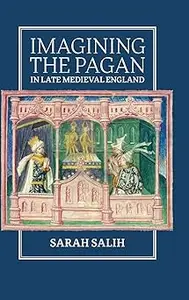
Free Download Sarah Salih, "Imagining the Pagan in Late Medieval England"
English | ISBN: 1843845407 | 2019 | 221 pages | PDF | 21 MB
Reads the imagined history of the long term relationship between pagan and Christian through quasi-factual fifteenth-century Middle English writings, from Lydgate's Troy Book to the hagiographies of Bokenham, Barclay and Capgrave and Mandeville's Travels.
SHORTLISTED for the 2020 Katharine Briggs Award.
Late medieval English culture was fascinated by the figure of the pagan, the ancestor whose religious difference must be negotiated, and by the pagan's idol, an animate artefact. In romances, histories and hagiographies medieval Christians told the story of the pagans, focussing on the absence or presence of pagan material culture in the medieval world to ask whether the pagan era had completely ended or whether it might persist into the Christian present.
This book reads the imagined history of the long term relationship between pagan and Christian through quasi-factual fifteenth-century Middle English writings. John Lydgate's Troy Book describes the foundation of a Troy that is at once London's ancestor and a vision for its future; he, John Capgrave and Reginald Pecock consider how pagans were able to build idols that attracted spirits to inhabit them. The hagiographies of Osbern Bokenham, Alexander Barclay, Capgrave and Lydgate describe the confrontation of saint and idol, and the saint's appropriation for Christians of the city the pagans built. Traces of the pagan appeared in the medieval present: Capgrave, Lydgateand John Metham contemplated both extant and lost artefacts; Lollards and orthodox writers disputed whether Christian devotional practice had pagan aspects; and Mandeville's Travels sympathetically imagined how pagans mightexplain themselves.
Dr SARAH SALIH is Senior Lecturer in Medieval English, King's College London.
Read more
Recommend Download Link Hight Speed | Please Say Thanks Keep Topic Live
Links are Interchangeable - Single Extraction
